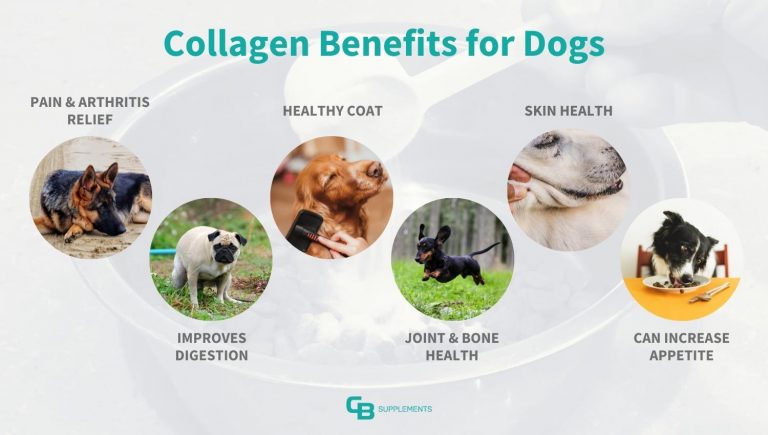In a world that increasingly aligns its values with compassion and empathy, the question surrounding the ingredients that grace our supplements looms large. Collagen, a protein celebrated for its benefits to skin, joints, and overall vitality, has found a substantial market among both humans and pets alike. However, beneath the polished veneer of health supplements lies a labyrinthine nexus of ethical considerations. Specifically, does collagen powder support animal cruelty? To appreciate this inquiry, it’s essential to dissect the sources, production methods, and ethical implications surrounding collagen as a dietary supplement.
Collagen, often referred to as the body’s scaffolding, is a pivotal component in connective tissues—its plethora of forms and types vital for structural integrity. While it serves as a cornerstone of health for both dogs and humans, not all collagen is derived through ethical means. The majority of collagen supplements originate from animal sources, particularly bovine and porcine, which raises immediate ethical dilemmas.
First and foremost, it is crucial to investigate the sourcing of collagen. For many supplements on the market, animal by-products are a staple. This brings to light the specter of factory farming—a system notorious for its flawed practices, often reducing sentient beings to mere commodities. The intensive confinement, inhumane treatment, and often brutal slaughter methods employed in these institutions can be distressing reminders of the darker side of animal agriculture, directly correlating with the existence of products we consume. If we consider the journey of collagen from pasture to powder, it becomes evident that a consumer’s quest for health may inadvertently contribute to a cycle of cruelty.
Furthermore, the methods of extracting collagen can perpetuate suffering beyond the initial slaughter. Processes often overlook humane treatment in favor of volume and efficiency. Under the glaring eyes of industrial needs, are we not tacitly endorsing practices that prioritize profit over the dignity of living beings? Operating under the assumption that our quest for optimal health can ethically coexist with the exploitation of animals creates a dissonance that warrants introspection.
It is essential to foster awareness of alternative sources. Marine collagen, obtained from fish scales and skin, has gained traction recently as a more sustainable and ethical option. However, the fishing industry is not without its own ethical quandaries. Overfishing, habitat destruction, and bycatch can wreak havoc on marine ecosystems, showcasing that even within alternative sources, the ripple effects of our choices can significantly impact wildlife and ecosystems.
When we consider the myriad of plant-based alternatives, it becomes increasingly apparent that ethical sourcing is not mutually exclusive from effective health supplementation. Innovations in vegan collagen production are expanding. Utilizing bioengineering techniques, companies are now harnessing microbial fermentation to develop collagens that do not rely on animal sources. This advancement presents a tantalizing possibility—a future where individuals can support their pets’ health without compromising their moral compass.
Moreover, it’s necessary to scrutinize the transparency of the supplement industry itself. A patchwork of regulations complicates the endorsement of ethical sourcing. Labels often lack clear indicators of provenance, and consumers may find themselves ensnared in a web of marketing hyperbole rather than factual transparency. The term “collagen” may appear on many products, but what lies beneath the surface? An ingredient list devoid of sustainability markers can obfuscate the truths behind animal welfare.
Furthermore, the societal narratives surrounding health and well-being often prioritize results over ethical considerations. There exists a dichotomy between the pursuit of personal health and an obligation to ensure that such pursuits are not achieved at the expense of another being’s suffering. Thus, the inquiry transcends mere dietary decisions; it becomes a reflection of our values, a mirror that reveals our collective attitudes toward beings with whom we share this planet.
This discussion extends to the larger implications of animal cruelty and cruelty-free practices. Supporting companies that prioritize ethical sourcing means advocating for a system that values animal welfare as much as it values human health. The conscientious consumer can make a difference with every purchase, selecting brands that prioritize humane practices while still delivering quality products.
In examining the relationship between collagen powder and animal cruelty, it becomes evident that the choices we make ripple through broader ethical waters. From ingredient sourcing to farming practices, our health decisions can either reinforce or combat systems of cruelty. As we become more aware of the interconnectedness of all life on Earth, the choice becomes clearer.
In the quest for optimal health, we should ask ourselves: what are the real costs of our supplements? A paltry price tag for a tub of collagen may come at a significant moral price. Supporting healthier living shouldn’t necessitate the subjugation of other creatures. In aligning our choices with our values, we can curate a future where health, well-being, and compassion coexist, fostering a more humane world for all beings. The question is no longer just what supports our health—but what impacts our ethical integrity?








